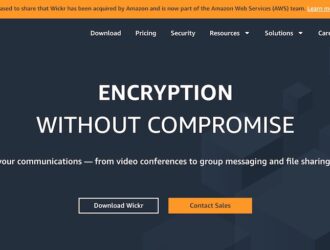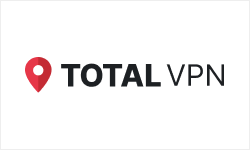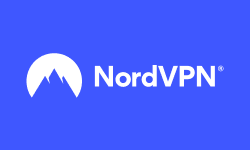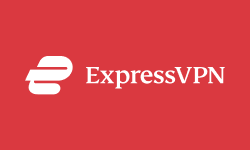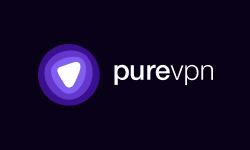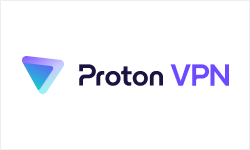What Is a VPN?
A VPN (Virtual Private Network) is a cybersecurity tool that protects your online privacy by encrypting your internet connection and masking your IP address. With a VPN, your internet traffic is routed through secure servers, making it nearly impossible for hackers, advertisers, or even your internet service provider (ISP) to track your activity.
VPNs are widely used by individuals, freelancers, and businesses to ensure secure browsing, access restricted content, and safeguard sensitive information.
VPNs can be divided into two main types:
Personal VPNs
These are designed for everyday users to protect privacy, stream geo-restricted content, and secure data while browsing on public Wi-Fi. Examples include NordVPN, ExpressVPN, and Surfshark.
Business VPNs
Tailored for companies, business VPNs provide secure remote access to internal networks, ensuring employees can work safely from anywhere. Examples include Perimeter 81 and Cisco AnyConnect.
How Does a VPN Work?
A VPN acts as a secure tunnel between your device and the internet. Instead of connecting directly, your data first passes through an encrypted server provided by the VPN service.
Encryption
VPNs encrypt your internet traffic, making it unreadable to hackers, ISPs, or government agencies. Even if someone intercepts your data, it will appear scrambled.
IP Address Masking
Your real IP address is hidden and replaced with the VPN server’s IP. This prevents websites from tracking your location and identity.
Secure Connections
VPNs provide a safe way to use unsecured Wi-Fi networks—like at airports, cafés, or hotels—by preventing hackers from stealing your data.
Geo-Unblocking
By connecting to servers in other countries, you can access websites, apps, or streaming services restricted to certain regions.
Additional Features
Most modern VPNs include extras like malware blocking, ad trackers, kill switches (to cut internet if VPN disconnects), and multi-device support.
Buying Guide: Best VPN Services in 2025
Choosing the right VPN depends on your usage needs—privacy, streaming, gaming, or business. Here are the factors to consider:
Functionality
Look for essential features such as AES-256 encryption, kill switch, DNS leak protection, and multi-device compatibility. If streaming is important, check whether the VPN bypasses Netflix, Hulu, and BBC iPlayer restrictions.
Speed & Performance
A VPN should maintain fast speeds for browsing, video calls, and gaming. Check whether the service has a large server network and optimized servers.
Ease of Use
Most VPNs offer apps for desktop, mobile, and even smart TVs. A clean interface, one-click connection, and intuitive design are key for non-technical users.
Pricing
VPN subscriptions generally cost $3–$12/month depending on features and length of the plan. Longer plans often provide the best value.
Scalability
If you need coverage for multiple devices or users (e.g., family or business), make sure the VPN allows multiple simultaneous connections.
Customer Support
Reliable support is essential. Look for providers offering 24/7 live chat, setup guides, and knowledge bases.
Why Do You Need a VPN?
Here are the main reasons to use a VPN in today’s digital world:
Online Privacy & Security
Protects against hackers, trackers, and surveillance, especially when browsing sensitive sites or making online transactions.
Safe Public Wi-Fi Usage
VPNs prevent cybercriminals from stealing passwords, emails, or financial data when using public networks.
Streaming Freedom
Bypassing geo-blocks allows you to access Netflix libraries, sports channels, or content unavailable in your country.
Bypass Censorship
In regions where certain websites or apps are restricted, VPNs provide unrestricted access.
Business Protection
For companies, VPNs secure remote employee access to sensitive files and internal systems.
How Much Does a VPN Cost?
VPN services are generally affordable, with entry-level plans starting at just a few dollars per month. Costs can increase depending on factors such as the number of devices you want to connect, server locations, and advanced features like dedicated IP addresses, ad blockers, or bundled password managers.
Most VPN providers offer significant discounts if you commit to annual or multi-year subscriptions instead of paying month-to-month. When comparing pricing, consider:
-
Features included (e.g., encryption strength, server network, streaming support)
-
Device limits (single-device vs. multi-device coverage)
-
Customer support availability
-
Long-term discounts (multi-year plans often provide the best value)
By weighing both the cost and benefits, you can choose a VPN that fits your budget while ensuring strong online privacy and security.
Final Note
In an age where digital privacy is constantly under threat, VPNs are no longer a luxury—they’re a necessity. Whether you want to protect your personal data, enjoy secure browsing on public Wi-Fi, or unlock global entertainment, a VPN offers a simple, cost-effective solution.

![Unlocking Ahrefs Premium: Get Ahrefs Premium Accounts [100% Free]](https://s44815.pcdn.co/wp-content/uploads/2023/10/Ahrefs-Free-Premium-accounts-2023-330x250.webp)

